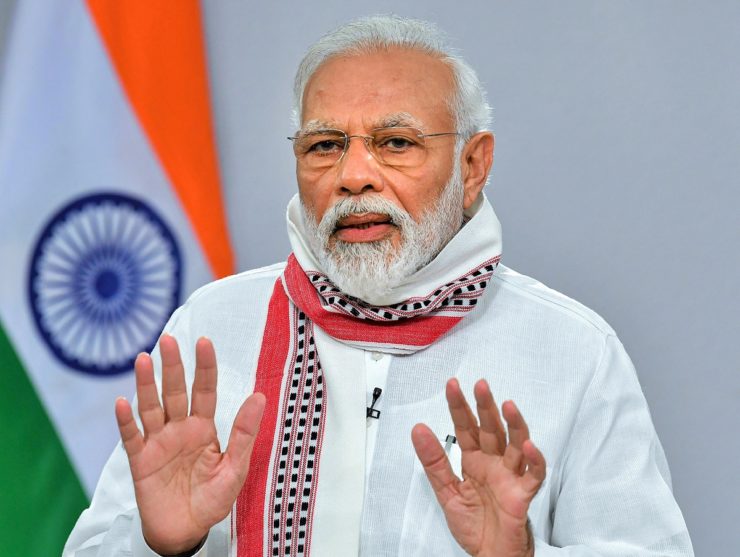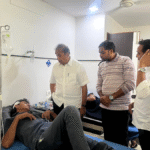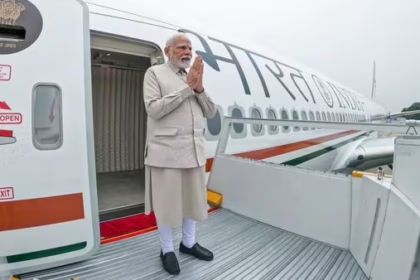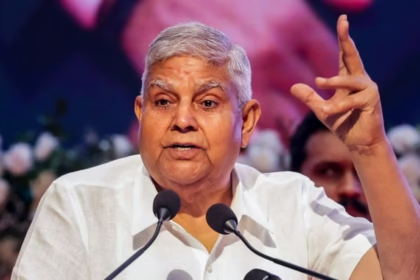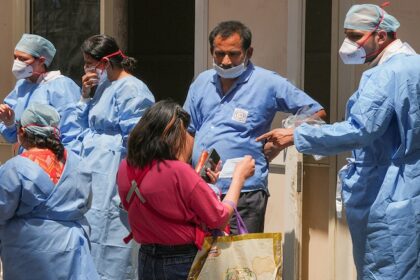Modi Health Policy Faces Criticism for Ignoring Malnutrition
On August 15 this year, in his address to the nation on Independence Day Prime Minister Narendra Modi flagged the problem of obesity as a major health challenge for our country and appealed to families to reduce cooking oil consumption by 10%. While doing so he remained indifferent to the deaths in India caused by hunger and severe under nourishment.
A 15-month-old girl in Madhya Pradesh’s Shivpuri located in Bundelkhand region died at the district hospital due to malnutrition. Her family refused any medical treatment for the infant as she was a girl, testifying to the worst form of patriarchy embedded in the feudal structure of society. The death of another boy in the region due to malnourishment yet again demonstrated the extent to which children are losing life because parents cannot afford to provide minimum diet for sheer survival.
India and Global Hunger Index
In the 2024 Global Hunger Index (GHI), India was placed at 105th rank out of 127 countries demonstrating persistence of hunger signifying fatal levels of undernourishment and severe form of child stunting, child wasting, and child mortality. The Modi regime, which is dismissive of the pitiable rank of India in Global Hunger Index, is not prepared to accept the stark reality of deaths caused by malnutrition. That was why Modi, while cautioning people about the complex health hazards and danger to life arising out of obesity, deliberately omitted any reference to refer to mounting loss of life due to malnutrition. Hunger, poverty and malnourishment are interlinked.
Gandhi on child mortality
Writing in Young India on February 27, 1930, Mahatma Gandhi referred to promises of a certain youth league that, among others, child mortality would decrease after attainment of freedom for India from British rule.
He then forcefully remarked, “Child mortality will not decrease except by banishing poverty and instructing the adult population in the art of rearing children”. As stated earlier, Modi in his address to the nation thought it fit not to throw light on the rising crisis of large scale deaths attributed to hunger, poverty and extreme degree of malnourishment.
Decoding malnutrition
According to reports, the deceased girl in Bundelkhand region weighed only 3.7 kg, far below the normal weight for her age. Doctors noted that her hemoglobin level dropped to just 7.4 grams per deciliter which is dangerously low for survival. Those alarming figures prove beyond doubt the phenomenon of what the GHI called “child stunting, child wasting, and child mortality.”
Such widespread ominous developments can be attributed to the abject failure of the implementation of the flagship scheme, the Integrated Child Development Services (ICDS) for improving nutritional status and reducing malnutrition of children and enhancing maternal and child health care.
In fact GHI observed in 2024 that “In India, although the country’s GHI score has fallen since 2000, child wasting and stunting remain very high. Child undernutrition in India goes hand in hand with the poor nutritional status of mothers, suggesting an intergenerational pattern of undernutrition and underscoring the need for attention to maternal health and nutrition and infant feeding.”
The Bundlekhand region where the death occurred due to malnutrition has been taken as an example to drive home the deepening of malnutrition crisis in India. Regions of the country inhabited by a large Scheduled Caste population, a number of Scheduled Tribes, minorities especially Muslims, and vast masses of other backward classes are confronted with the grave crises of acute hunger, deprivation and malnutrition.
Such a man made disaster has been aggravated with the domination of upper castes by their acquisition of power, possession of assets and their leadership positions in several structures of governance. The Human Development Report of 1995 stated very profoundly that if development is not engendered it would be endangered.
Against this scenario it is critical to locate the death of the girl child in Bundelkhand region where poverty levels have remained consistently high and over 30 percent of people live in extreme poverty.
The per capita income of the region is half the national average, and none of its economic indicators are on a growth trajectory. As a result, infant mortality rates are very high. Added to it is the issue of immunisation which is not universal. Insufficient supplementary nutrition for mothers, poor hygiene and lack of access to timely care in emergencies keeps maternal mortality rates amongst the highest in the nation.
The highly patriarchal nature of society, suppresses women and keeps them subjugated and dominated. The sex ratios are significantly low in several states except in Kerala and a few other parts of India. Women do the same work as men and yet are paid less as compared to men.
Even in the political sphere, they play the role of surrogates and therefore, are excluded from the public space. All such factors result in denial of equal rights to them in owning property, getting access to economic opportunities and enhancing their capabilities. Violence against women has become a routine affair.
It is, therefore, crucial to address the burgeoning problem of under nutrition and resultant crisis it has created. Curiously the multifaceted malnutrition characterised by stunting, underweight, and escalating overweight and obesity rates is plaguing India. These trends signify serious economic ramifications, with obesity-related costs expected to rise significantly. Modi only prioritising obesity and overlooking the undernutrition has undermined the crisis. A holistic perspective is needed to address the problem.


